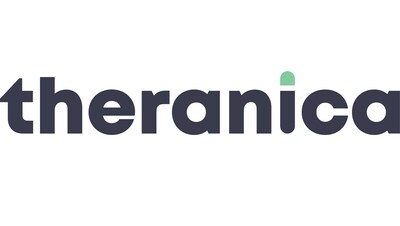Theranica announced the results of a study recently published in Headache demonstrating the safety of the Nerivio® migraine bioband, a novel Remote Electrical Neuromodulation (REN) wearable, as a drug-free treatment for pregnant women with migraine.
|
Controlled Retrospective Study Compared Use of Drug-Free Solution to Standard Care Treatments for Migraine During Pregnancy NETANYA, Israel and BRIDGEWATER, N.J., June 21, 2023 /PRNewswire/ -- Theranica, a prescribed digital therapeutics company, announced the results of a study recently published in Headache demonstrating the safety of the Nerivio® migraine bioband, a novel Remote Electrical Neuromodulation (REN) wearable, as a drug-free treatment for pregnant women with migraine. The study found no statistically significant differences in critical pregnancy outcomes between women with migraine who used the Nerivio migraine bioband during pregnancy throughout three months postpartum, and those who did not use the device during this period. The study demonstrates the Nerivio migraine bioband's safety as a migraine treatment for pregnant women while reinforcing its efficacy as seen in previous studies. More than 25% of women experience migraine during their lifetime, and hormone fluctuations, especially those that occur during pregnancy, can have a large impact on the frequency and severity of migraine attacks. Additionally, pregnant women with a history of migraine are at higher risk than those without migraine for adverse pregnancy outcomes, such as low birth weight, preterm birth, and pre-eclampsia. While, according to the American Headache Society, some medications are contraindicated during pregnancy due to their potential for fetal or maternal harm, other treatments have not been adequately studied in pregnancy. This has resulted in a great unmet need for safe migraine treatments during pregnancy and lactation. The controlled study (NCT05464069) consisted of a retrospective survey of women with migraine between 18 - 45 years of age who were pregnant during the study period. Participants in the REN (Nerivio) group (59 women) used Nerivio for at least 3 treatments during the study pregnancy period, while participants in the control group (81 women) treated with various standard care treatments during pregnancy, except for Nerivio. There was no statistical difference between the two groups in terms of the following pregnancy outcomes: gestational age, baby's birth weight, miscarriage rate, stillbirth rate, preterm birth rate, birth defects rate, baby meeting developmental milestones 3 months after birth, and rate of emergency room or urgent care visits due to pregnancy and/or migraine symptoms. "Migraine has debilitating impacts on quality of life in many ways, and people with migraine must too often make concessions in their daily lives," says Alit Stark-Inbar, a neuroscience PhD and Theranica's vice president of medical information, who designed the study together with a group of US OB/GYN and headache specialists. "Depending on comorbidities and other risk factors, certain sub-populations can be more sensitive to prescription medications. Pregnant women have an extra burden in needing to prioritize and carefully monitor their own health and that of their baby. Some women living with migraine are reluctant to start a family due to fear of how traditional migraine treatments, like prescription medications, might negatively impact their pregnancy. While Nerivio was already tested to be safe and effective in more general populations of people living with migraine, this study was targeted to providing pregnant women living with migraine, as well as their healthcare providers, with more specific data of this subpopulation, to help them make a more educated and evidence-based decision about which migraine therapy may be suitable during and around pregnancy." In a survey published earlier this year in Headache, women's healthcare providers indicated they were uncomfortable prescribing triptans to treat migraine during pregnancy. While over-the-counter medications such as acetaminophen are considered safe for use during pregnancy, they may not be effective enough on their own to provide lasting relief from the pain and associated symptoms of a migraine attack. This creates an unmet need for a migraine treatment that is safe to use during pregnancy and postpartum. "Pregnant patients should have access to safe and effective therapies for managing migraine, therapies that do not compromise the health and safety of mother or fetus," says Addie Peretz, MD, Clinical Assistant Professor of Neurology at Stanford Medicine, and the lead author of this new study. "While more targeted studies in pregnant women with migraine are needed, this study offers hope for those seeking effective and safe interventions for migraine during pregnancy." Headache also conducted a video interview with two of the study authors, Dr. Peretz and Nina Riggins, MD, PhD, Director of the UC San Diego Health Headache Center, about the importance of this work and can be viewed here: https://youtu.be/QSgHqyUXawQ Controlled by a smartphone app and self-administered, the Nerivio migraine bioband wraps around the upper arm and uses non-painful REN to activate nociceptive nerves fibers in arm to send signals that activate a natural pain management mechanism in the brain called conditioned pain modulation (CPM). This triggers the brain to turn off migraine pain and associated symptoms without medication. Each Nerivio treatment lasts 45 minutes and is used once every other day for prevention, or at the start of a migraine attack for acute treatment. Nerivio is FDA-cleared for acute and/or preventive treatment of migraine with or without aura in individuals 12 years and older. About Theranica Theranica Contact Media Contact
SOURCE Theranica |





